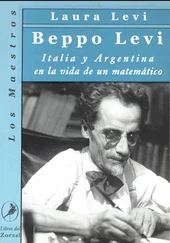Tuning the nineteenth-century organ of St. George’s Church was a private arrangement, normally the job of a single hour. But fifteen minutes into the tuning that morning, Malory found something wrong with the D-sharp in the six-inch reeds of the organ. He slipped the rod a quarter-inch and brought the pipe into tune, only to find that the problem migrated to the G-sharp. Solving the G-sharp only spread the oddity to two other pipes. Sometimes it was a defect of pitch, sometimes it was complete strangulation. All morning he chased the blockage, from pipes to stops, from bellows back to console. The six-inch reeds were only fifteen feet above the paving stones of the nave and easily examined by means of a wooden A-frame that the warden kept with the mop and bucket behind the safe in the Lady Chapel. But as scones lost out to lunch and Malory still hadn’t left the church, the demon of the organ continued to elude him.
It was after three when Malory climbed from the chancel, by way of a staircase behind the reeds and then up a vertical ladder, fifty-two rungs — so he told Louiza as she twisted a strand of hair around a wheaten ear — to the bell tower. He wasn’t certain what he’d find up there among the webs and guano. There was no clear link to the organ twenty feet below. Certainly the bellows drew air from up here through the four sets of slats cut into the sloping steeple, although it drew air, one might say, from everywhere. He needed a change of scene but wasn’t prepared to leave St. George’s until he had slain the dragon. Perhaps if he did not play, the demon would not appear.
“It’s like Schrödinger’s cat,” Malory said.
“Don’t know him.” Louiza bowed her head, casting a tangle of gold over the front of her eyes in an embarrassment that Malory immediately regretted.
“No, no. Schrödinger was a physicist, German, back in the 1920s. He tried to describe why looking for things was, well, difficult. How looking changed what you were looking for.” Malory was so flummoxed by his own attempts at explanation that he could barely look at Louiza. “Schrödinger presented a problem — a cat is in a box along with a bottle of poisonous gas and a tiny piece of uranium. The uranium spits out radioactive particles at random, like a popcorn popper at Strawberry Fair. We can never tell when a particle will come whizzing out, or in which direction it will fly. But when enough uranium particles finally hit, the bottle of poisonous gas will explode.”
“And then?” Louiza asked.
“The cat will die,” Malory said. “Painlessly,” he added, although he was pleased to see that Louiza was more interested in the intellectual problem than in feline sensibilities. “So we make our experiment — we put the cat in the box with the gas and the uranium and seal it tight and let the clock tick. After a minute or so, we ask the question, is Kitty dead or alive?”
“Yes,” said Louiza.
“Yes!” Malory whooped. “That is the answer of the old physics. Yes, the old physics would have said — the cat is either dead or alive.”
“Hmm,” Louiza hummed.
Hmm? Was Louiza making fun of him, or did she already know the joke, or was she simply bored and he was losing her? “The new physics,” he continued, “quantum mechanics, says until we open the box, the cat is possibly dead and possibly alive.”
“Or nibbling on popcorn at Strawberry Fair?” Louiza smiled, and Malory felt the pipes in his chest rise up half a tone.
“Anything is possible,” he whispered, “until we look.”
“And afterwards?” Louiza asked.
“What do you mean?” Malory hadn’t reckoned on questions, only a little sympathy for an organ tuner who had missed his scones in search of a dead cat.
“After the box is opened,” Louiza said, as simply as Pandora. “Once we look inside, is anything still possible?”
“Well,” Malory said, “some physicists believe that there are two worlds that exist after the box is opened. In one world is the cat we see, in the other the cat we don’t. In one world, the cat is being chased by worms. In the other, he is raring to catch mice. The only problem is, neither world knows anything about the other. Live Felix doesn’t know Dead Felix exists. But they both do.”
“Ah!” said Louiza, and clapped her hands. “That’s what I hoped.”
“You did?” Malory said, pleased if confused by his ability to provoke such delight in this angel.
“Yes!” Louiza said, jumping up and reaching for the high beam of the steeple. “You see, that’s where I come from, a world of half-dead cats.”
It was then that Louiza explained to Malory what she had never explained to others. She told him of the soggy schools and playgrounds of the Norfolk marshes, where the teachers and children insisted on reading and writing in a language of letters that made no sense to Louiza. She talked of her mother, who tried to drill the rudiments of language into her uncomprehending daughter, while her father grumbled over reheated shepherd’s pie. Finally, Louiza told Malory about mathematics, how mathematics connected her to the world.
“It was very simple,” she said. “If I could link a word with a number — say, the word cat with the number negative 57—if I could turn a word into a formula, then I could read the world.”
“Why negative 57?”
“Because the world of my teachers, my enemies, my own father was all so negative. ‘Louiza can’t read’—negative. ‘Louiza can’t write’—negative. ‘Doesn’t focus in class’—negative. ‘Never amount’—negative. My whole life, one big negative. Naturally, when I began to think in numbers, I made z negative 1, y negative 2, up to negative 26 for a . So cat is negative 24 plus negative 26 plus negative 7—equals negative 57.
“I am negative one,” Malory said, aiming at wit with sympathy.
“No,” Louiza said, “ i is the square root of negative 1.” Her eyebrows rose to emphasize the italics.
Even Malory, flustered by Louiza’s parry, knew that mathematicians since the time of Newton have written the king of imaginary numbers as a lowercase, italicized i. The force behind Louiza’s pronunciation of the letter was, perhaps, born from the vertigo of those early mathematicians as they pondered the square root of –1, afraid themselves of tipping over with the effort of imagining such a thing. The square roots of negative numbers, after all, did not exist in the real world any more than half-dead cats. What number, times itself, would give you a square with an area of –1? When you squared a number, a positive number or a negative number, it gave you a positive answer. +2 times +2 equals +4. –2 times –2 equals +4. That was how it went. That was cricket. Those were the rules. All numbers, when you squared them, when you multiplied them by themselves, gave you a positive number. So the question, What is the square root of –1? was just, well, clearly not a question you should ask. Nevertheless, it was easy enough, with a piece of chalk and a board, or a pencil and paper, to scribble down equations like:
x 2+ 1 = 0
For many people, these scribbles, these equations not only existed but demanded answers. Subtracting 1 from both sides of the equation, whether in the smoky, chintz parlor of Louiza’s Norfolk farmhouse or the drafty, gothic classroom of Malory’s King’s College Choir School led to:
x 2= –1
and then:

which a sixteenth-century mathematician decided to baptize with an italic i, perhaps to keep it from infecting the real numbers, the ones you could see and touch and chew.

Читать дальше














